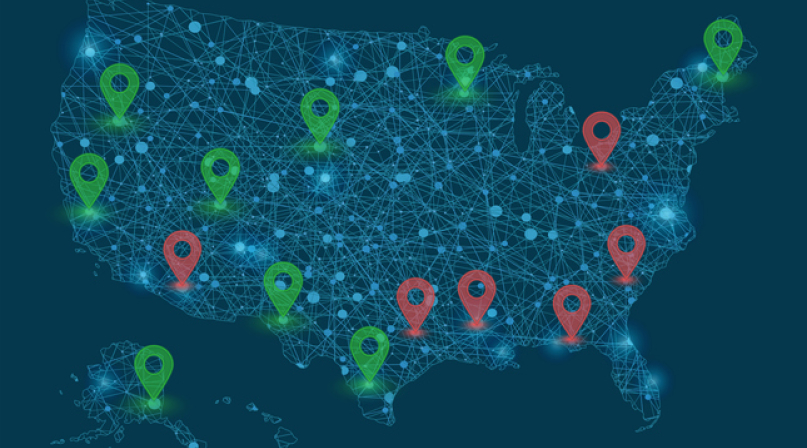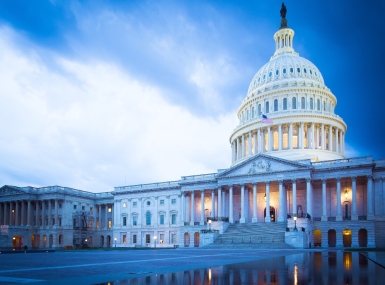NACo urges counties to participate in the FCC’s Broadband Data Collection process
Author

Seamus Dowdall
Upcoming Events
Related News

Key Takeaways
America’s county government leaders have a unique opportunity to review and inform the Federal Communication Commission’s broadband mapping data for your county. This process, known as the Broadband Data Collection (BDC) process, will be instrumental in the distribution of more than $40 billion in federal broadband grants to states beginning in 2023.
In an effort to support counties as they prepare for a historic influx in broadband infrastructure funding, NACo is publishing key pointers and an accompanying resource hub to assist counties in the effort to close the digital divide in communities across the country. This page will be regularly updated with additional pertinent information for counties.
What is the FCC’s Broadband Data Collection Process? Why does it matter for my county?
- Local governments, including counties, are being called upon to engage in the Federal Communication Commission’s Broadband Data Collection (BDC) process, which is the ongoing effort to publish a new national map of broadband availability across the country that will provide both fixed service and mobile service data. Internet service providers and governmental entities play several roles in the Broadband Data Collection process, including submitting availability data (to the extent that they are direct providers of broadband services) and being permitted to review and challenge both location-based data and availability data contained within the maps.
- The Broadband Data Collection process requires a semi-annual submission of broadband availability data by providers of broadband services. The first submission cycle under the new BDC process took place from June 30 – September 1, and the next cycle will take place from December 31 – March 1, with each filing window taking place six months thereafter. The FCC’s national broadband map will continuously update with each filing period’s set of data, with the first version reflecting the first filing window’s data to be published in November.
How do I participate in improving the FCC’s location-based information?
- Internet service providers and governmental entities are now permitted to participate in reviewing the first layer of the forthcoming FCC broadband maps, which is called the broadband serviceable location fabric (or the Fabric). The Fabric includes every residential and business address that is deemed serviceable by a broadband provider, and service providers will be required to report the locations in which they serve and do not serve.
- The bulk challenge process for the Fabric is currently open for counties. It is not too late for counties to engage in this critical process. Although the challenge window will not close due to the broadband data collection process being designed as iterative and ongoing, counties are strongly encouraged to review and submit corrections to the data no later than December 1 to ensure the updated location data is included on the next round of broadband availability filing for service providers. It is highly expected that the NTIA will utilize the 2nd or 3rd iteration of the maps to make state funding allocations for BIL’s $42.45 billion BEAD program.
How do I participate in reviewing the FCC’s broadband availability data?
- The FCC is expected to publish their first iteration of the broadband maps in November. Following the publication of availability data, a challenge process for internet service providers and governmental entities as well as individual consumers will initiate for both fixed service availability and mobile service availability. The bulk specifications for challenging fixed availability data are now available, and counties can make preliminary preparations now to ensure they are familiar with the types of permissible challenges in advance of the release of the availability data.
- Challenges to mobile availability data will also be permissible, with challenges taking place through verified and approved third-party speed test applications. The FCC’s speed test application is the only application that has thus far been submitted for approval and approved by the commission for use in the mobile challenge process.
Additional NACo resources
- NACo One-Pager on the Broadband Data Collection process key dates
- NACo Webinar on the FCC Broadband Data Collection process
- NACo Blog on the Broadband Serviceable Location Fabric release
- There are various third-party organizations that are offering free or low-cost technical support to counties and communities that are interested. These entities are not NACo-endorsed.
Resource
Outreach Toolkit for Counties: The FCC’s Affordable Connectivity Program

Related News

Congress passes the TAKE IT DOWN Act
The TAKE IT DOWN Act establishes federal authorities at the Federal Trade Commission to remove non-consensual intimate images from digital platforms

Congressional leaders introduce bipartisan bill to strengthen technical assistance for rural broadband
The Rural Broadband Assistance Act strengthens local access to federal broadband programs by codifying USDA’s Broadband Technical Assistance Program and ensuring continued support for broadband deployment in rural communities.

County Countdown – April 21, 2025
Every other week, NACo's County Countdown reviews top federal policy advocacy items with an eye towards counties and the intergovernmental partnership. This week features the ARPA reporting deadline, a budget reconciliation update and more